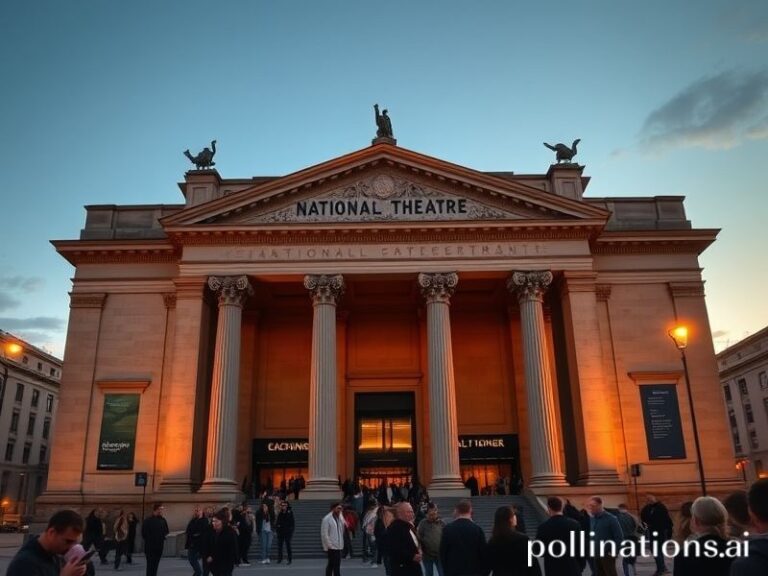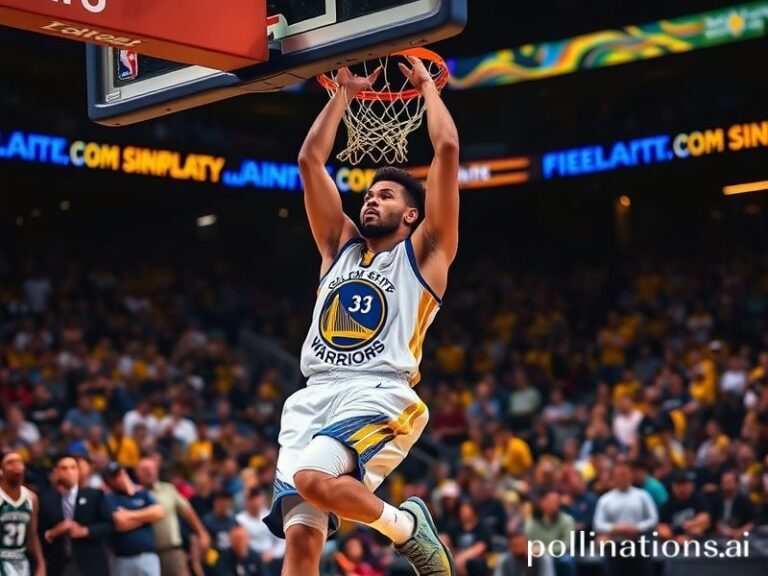Blake Snell’s Global Limbo: How a Cy Young Winner Became Baseball’s Unwanted Tourist
Blake Snell and the Collapsing Empire of Baseball’s Middle Class
By Dave’s Locker International Desk
PARIS—From the banks of the Seine, where café philosophers argue whether existential dread pairs better with a Bordeaux or a baguette, one may peer across the Atlantic and behold an American pitcher named Blake Snell—two syllables now shorthand for late-capitalist baseball’s slow-motion implosion. Snell, the reigning National League Cy Young winner, remains jobless in late March, a free agent so conspicuously unsigned that even French civil servants have stopped taking cigarette breaks long enough to mutter, “Mon Dieu, even we get paid eventually.”
Snell’s saga is not merely a domestic curiosity; it is a trans-oceanic cautionary tale about what happens when billion-dollar franchises discover that the most patriotic act is hoarding cash like dragons in downturned markets. Picture this: In Seoul, KBO scouts salivate at the thought of importing a left arm that once tormented the Dodgers; in Tokyo, SoftBank execs calculate whether Snell’s slider could survive the humidity of Fukuoka; and in Caracas, winter-ball hustlers wonder if the gringo’s price tag has finally dropped below the cost of a decent armored SUV. Meanwhile, back in MLB’s front offices, accountants wearing Patagonia vests murmur sweet nothings to spreadsheets, arguing that surrendering a compensatory draft pick is tantamount to ritual seppuku.
The global implications shimmer like a heat mirage. Baseball—once America’s gift to the world, alongside jazz and Type 2 diabetes—now struggles to justify its own supply chains. If a reigning Cy Young winner can’t find work, what hope is there for the middling middle reliever in Mexico City or the utility infielder scraping pesos in the Dominican? The sport’s middle class is evaporating faster than Russian oligarch yachts in a sanctions wind. Snell is merely the canary wearing a $200 million asking price in a coal mine lined with luxury-tax thresholds.
Europeans, ever eager to lecture Americans on labor rights, watch the spectacle with the detached amusement of spectators at a bullfight. “At least our footballers get release clauses,” sniffs a Barcelona-based agent, pausing only to dodge an angry Catalan separatist. Indeed, soccer’s global transfer market—messy, rapacious, occasionally criminal—still moves talent with the efficiency of a Swiss train. Baseball, by contrast, now treats its stars like vintage wine: admired, cellared, and ultimately auctioned off to the highest hedge fund.
Asia offers a different lens. In South Korea, the Doosan Bears could sign Snell for the GDP of a small island nation, but the KBO’s salary cap—imposed by executives who fear the wrath of fans paying $12 for beer—keeps dreams modest. Japan’s NPB, flush with SoftBank’s SoftBank money, could theoretically float Snell’s yacht, yet even the Pacific League has discovered the seductive gospel of fiscal prudence. The result: a perverse equilibrium where elite talent circles the globe like a lost satellite, beaming back data on how not to run a labor market.
The broader significance? Snell’s limbo is a geopolitical Rorschach test. To the American fan, it’s proof that owners would rather invest in blockchain seat licenses than actual players. To the Caribbean teenager with a 95-mph fastball, it’s a reminder that the promised land may outsource its promises. To the European observer, it’s the latest episode of a sitcom titled “Late-Stage Capitalism,” streaming on every smartphone between refugee-camp Wi-Fi hiccups.
And so we wait. Somewhere in a San Diego penthouse, Snell’s agent counts down the days until Opening Day like a hostage negotiator eyeing the SWAT team. Somewhere in Queens, Steve Cohen refreshes his Bloomberg terminal, calculating whether a left-handed deGrom-lite is worth the luxury-tax equivalent of a small Baltic navy. And somewhere in the ether, the ghost of Marvin Miller lights a cigar, chuckling at the exquisite irony: the players won free agency only to discover the market had unionized against them.
Conclusion? Until a franchise decides that winning baseball games is still a legitimate business model, Blake Snell will remain the sport’s most overqualified tourist—pitching simulated games in Scottsdale while the world watches America’s pastime perfect the art of the self-inflicted strikeout. In the meantime, the rest of us can raise a glass—Bordeaux or baguette optional—and toast to the absurdity of a planet where excellence is optional, but spreadsheets are eternal.







